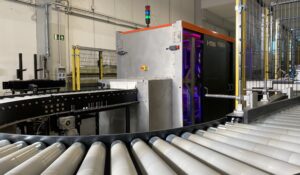For a long time, industrial automation was associated with large corporations, massive production lines and million-dollar budgets. Today, however, thanks to technological advances, small and medium-sized enterprises (SMEs) can also access automated solutions that fit their needs and resources.
Automation is no longer a luxury: it is a strategic tool that allows SMEs to improve their productivity, reduce costs and remain competitive in an increasingly demanding environment.
Why go for automation in an SME?
SMEs face daily challenges such as a shortage of skilled labor, pressure to maintain competitive prices and the need to increase operational efficiency. In this context, automation makes it possible:
- Reduce human error: repetitive or mechanical tasks can be automated, improving product quality and consistency.
- Optimize resources: improve efficiency in the use of materials and energy.
- Improve traceability: with digital control systems, each phase of the production process can be precisely tracked.
- Free up human talent: workers can focus on higher value-added tasks such as supervision, quality control or innovation.
A World Economic Forum study indicates that more than 80% of SMEs that have adopted digital technologies (including automation) report significant improvements in their operational performance.
Affordable solutions: technology within the reach of SMEs
Thanks to the democratization of technology, affordable automation solutions are available for almost any industrial sector. Some of the most prominent include:
1. Collaborative robots (cobots)
Cobots are designed to work alongside humans without the need for complex safety barriers. They are less expensive than traditional industrial robots, easy to program and very versatile. For example, they can be used for assembly, palletizing, adhesive application or visual inspection.
2. Machine vision systems
At increasingly affordable prices, smart cameras and machine vision algorithms enable automatic quality control, code reading, defect detection or non-contact measurements. In addition, many of these systems can be easily integrated into existing production lines.
3. Administrative Process Automation (RPA)
Although not strictly industrial, software process automation (RPA) can reduce time and errors in tasks such as order management, invoicing, inventory and logistics. It is a fast and cost-effective way to improve overall business efficiency.
Scalability: growing without losing control
One of the great benefits of today’s solutions is their scalability. SMEs can start with small, inexpensive automations and expand their systems as they grow or as returns on investment are generated. Modular platforms, IoT-based systems and cloud-based software solutions allow for progressive deployment.
For example, a shop floor might start by automating quality control with machine vision at a critical station, and then extend the solution to other stages of production. Or a factory might start with a single cobot and add more as the workload increases.
The key is to design a flexible automation plan, with solutions that are compatible and open to future integrations. This makes it possible to adapt the investment to the pace of business growth.
Tips for implementing automation in an SME
Before automating, there are a few basic steps to follow to maximize ROI:
- Process diagnosis: analyze which tasks are most repetitive, critical or error-prone.
- Define clear objectives: are you looking to reduce costs, increase production, improve quality?
- Evaluate ROI: although the initial investment may seem high, many solutions pay for themselves in a few months.
- Seek expert advice: having the support of specialized engineering firms can make all the difference. At I-MAS we work with a multidisciplinary team capable of offering comprehensive customized solutions, from mechanical design to manufacturing, assembly and commissioning. In addition, we develop customized software for the management, control and remote access of installations, which allows us to deliver turnkey solutions perfectly adapted to the needs of each client.
- Training and adaptation of personnel: automating does not mean replacing people, but giving them the tools to work better.
In short, we can say that industrial automation is no longer the exclusive preserve of large factories. Today, thanks to technological evolution, there are affordable, scalable and easy-to-implement solutions for small and medium-sized companies. Automation not only makes you more competitive, but also more efficient, accurate and sustainable. For SMEs that want to grow and adapt to the future, automation is no longer an option: it is a strategic necessity.
In the engineering department of i-mas we are specialized in the combination of artificial vision technologies, deep learning and industrial automation in production processes, which allows us to offer integral solutions adapted to the specific needs of each client.
Want to learn more about our services? Contact us or visit our projects section!



